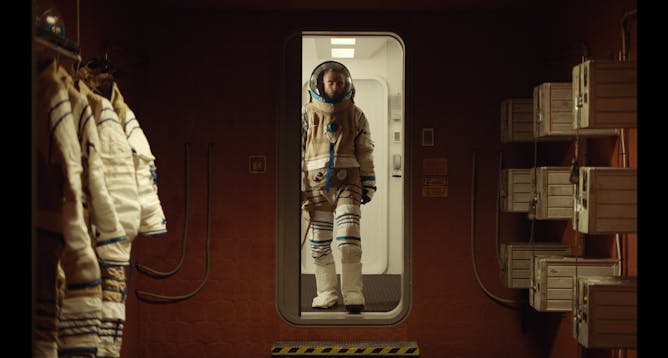|
|
|
Editor's note
|
|
Yesterday the UN warned that if no action is taken to tackle antimicrobial resistance, drug-resistant diseases could cause 10m deaths a year by 2050. One of the ways of tackling this problem is to get doctors to issue fewer prescriptions for antibiotics. But this won’t work, says Andrew Colman. His latest study uses game theory to show that doctors will continue to prescribe antibiotics whenever it seems possible that a patient has a
bacterial infection, as this is the best strategy for their own patients. Different strategies are needed to interrupt this deadly “game”.
Stillness and quiet are not qualities you would necessarily associate with the mainstream cinema – along with lengthy tracking shots and a narrative focus on the more mundane aspects of life, they’ve come to represent the “slow cinema” movement. Until recently this has been something for aficionados of arthouse movies, but – with the success of Alfonso Cuarón’s Roma at the 2018 Oscars – the slow movie aesthetic is making its way into the
mainstream. Film scholar Andrew Russell reports.
The world is full of weird and wonderful eyes: insects’ eyes are made up of thousands of tiny “mini eyes” joined together; spiders have different pairs of eyes that they use for different tasks; crabs have eyes on stalks, and some molluscs can have up to 100 eyes. But why do humans have whites in our eyes, when so many other animals have dark eyes? Jonathan Denniss explains, in the latest instalment of Curious Kids.
|
Clint Witchalls
Health + Medicine Editor
|

|
|
Top stories
|

Fahroni/Shutterstock
Andrew M Colman, University of Leicester
New study proves that asking doctors to prescribe fewer antibiotics won't work.
|

High Life: where slow cinema is concerned, beauty is in the eye of the beholder.
Thunderbird Releasing
Andrew Russell, University of Portsmouth
Slow movies have until now been largely confined to arthouse cinema, for film aficionados only. Not any more.
|

I spy with my little eye…
Shutterstock.
Jonathan Denniss, University of Bradford
Pets, like guinea pigs, lead very different lives to humans – and that's why they need very different eyes, too.
|
Politics + Society
|
-
Catherine Briddick, University of Oxford
Why the government's post-Brexit immigration proposals are particularly bad for women.
-
Kathleen Cronie, University of Aberdeen
Humour can diffuse tension, foster creativity and help build a team.
-
Caroline Gray, Aston University
Sánchez seeks to build alliances but not a formal coalition as the Socialists win but fall short of an absolute majority.
-
Stephen Chan, SOAS, University of London
Is a perfect storm brewing in the African nation?
|
|
Environment + Energy
|
-
Evina Katsou, Brunel University London
Currently, all the value in sewage sludge is literally being flushed down the toilet.
|
|
Business + Economy
|
-
Yasemin Kor, Cambridge Judge Business School
Supermarkets have been hit by multiple disruptions in the past couple of decades and they are struggling to survive.
|
|
Science + Technology
|
-
Manal Mohammed, University of Westminster
A new reactor may soon be able to safely disinfect the air in crowded spaces.
|
|
| |
Featured events
|

|
Room K/133, King's Manor, York, York, YO1 7EP, United Kingdom — University of York
|

|
Room P/X/001, Physics/Electronics Building, Campus West, York, York, YO10 5DD, United Kingdom — University of York
|

|
St Helens Road, Ormskirk, Lancashire, L39 4QP, United Kingdom — Edge Hill University
|

|
East Road, Cambridge, Cambridgeshire, CB11PT, United Kingdom — Anglia Ruskin University
|
|
|
|
| |
| |
| |
| |
| |
|
|
|
|
|
|
|